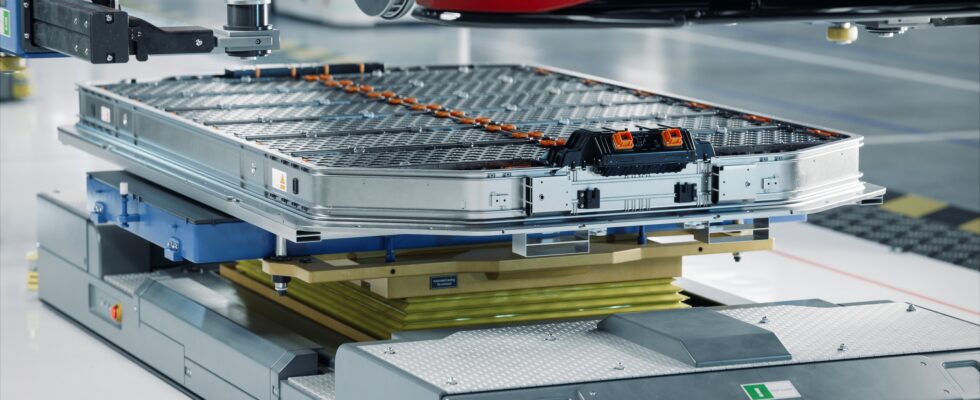The Stellantis automobile group has decided to invest in the French company Tiamat, specialized in sodium-ion batteries, to produce electric vehicles in a more economical and ecological way.
Stellantis formalized, on Friday January 12, 2024, a strategic investment via its venture capital fund in the French company Tiamat, which has been working on sodium-ion technology for several years. The young company designs, develops and manufactures sodium-ion batteries with life-saving properties, in addition to better performance at low temperatures, in addition to faster recharge capacity. The idea of Stellantis? Use it to enable large-scale production of electric vehicles.
Sodium-ion technology, a real interest for the electric automobile industry
The Franco-Italian-American automobile group Stellantis participated in a fundraising of 150 million euros, to invest in Tiamat, a spin-off company from the French CNRS. The investment will be used to support the construction of a factory in the north of the country, which should help Tiamat reach a capacity of 0.7 GWh by 2026, and ultimately (by 2029 at best) 5 GWh .
Tiamat, a company founded in 2017, offers sodium-ion battery technology which eliminates the need for lithium, a rare metal. Although these batteries offer less autonomy, their reduced cost and the possibility of rapid charging make them ideal for small vehicles, hence the interest of the Stellantis group.
Tiamat’s sodium-ion technology represents a lower cost per kilowatt hour and uses neither lithium nor cobalt. The French start-up, supported by the Stellantis Ventures fund, became the first company to successfully commercialize sodium-ion technology.
Stellantis is banking on sodium-ion to help it achieve carbon neutrality
Ned Curic, director of engineering and technology at Stellantis, emphasizes that this innovation also aligns with the ambitions of the group’s Dare Forward 2030 plan, aiming to achieve a net zero carbon footprint by 2038 thanks to to clean and affordable mobility solutions.
This plan aims to achieve a battery electric vehicle sales mix of 100% for passenger cars in Europe by 2030, and 50% for passenger cars and light user vehicles in the United States. Stellantis, which recently brought forward orders for the electric Citroën ë-C3, intends to strengthen its investments in alternative technologies, such as sodium-ion batteries.
The collaboration with Tiamat will help propel the production of these batteries in France, initially for stationary and power tool applications, before expanding to second generation products for electric vehicles.

7